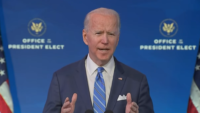The drive to put the first new Water Resources Development Act (WRDA) on the books in more than five years picked up some steam on Sept. 11, when House Transportation and Infrastructure Committee Chairman Bill Shuster introduced a measure to authorize new Corps of Engineers projects and mandate policy changes aimed at expediting project approvals.
The Pennsylvania Republican said at a press conference that his bill would authorize about $8 billion in new Corps projects, plus $2 billion in modifications to existing projects. But he added that those funds would be more than offset by de-authorizing $12 billion worth of pre-2007 projects, including those on which construction has not yet started.
Shuster said his committee will vote on the bill, which he titled the Water Resources Reform and Development Act, on Sept. 19. The timing of floor action is difficult to predict, but he indicated that a House floor vote on the measure could occur in the second week of October.
Shuster’s bill has bipartisan support—most notably from Rep. Nick Rahall (W.Va.), the transportation committee’s top Democrat—which should smooth the way for the panel’s quick approval.
Rahall said, “With this bill, we’re getting back on the path to WRDA reauthorization every two years so that needed projects don’t languish.” The last WRDA became law in November 2007.
The Senate passed by a large margin its version of a new WRDA in May. The Senate bill's floor manager, Environment and Public Works Committee Chairman Barbara Boxer (D-Calif.), said she was pleased that House transportation leaders developed a bipartisan measure. She added, "I urge the House to move quickly so that we can reconcile the House and Senate approaches and get a water-resources development bill to the president's desk."
The two bills have similarities. Both would provide a large boost in funding for dredging projects by increasing spending from the Harbor Maintenance Trust Fund. That spending has been running well short of its annual income, which is derived from a fee on waterborne imports.
Shuster’s legislation would boost spending from the trust fund in annual increments to 80% of its income by fiscal 2020.
The Senate WRDA also boosts trust-fund spending substantially in annual steps over five years.



Post a comment to this article
Report Abusive Comment